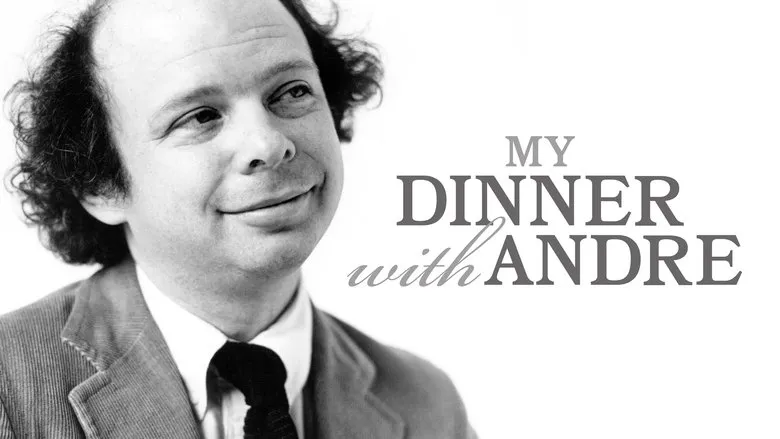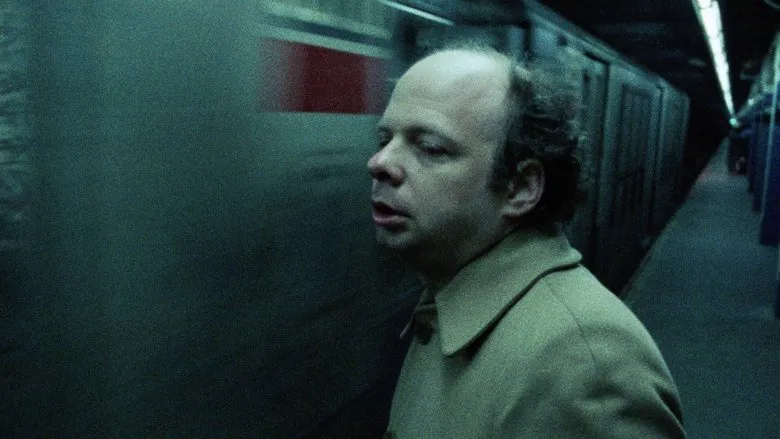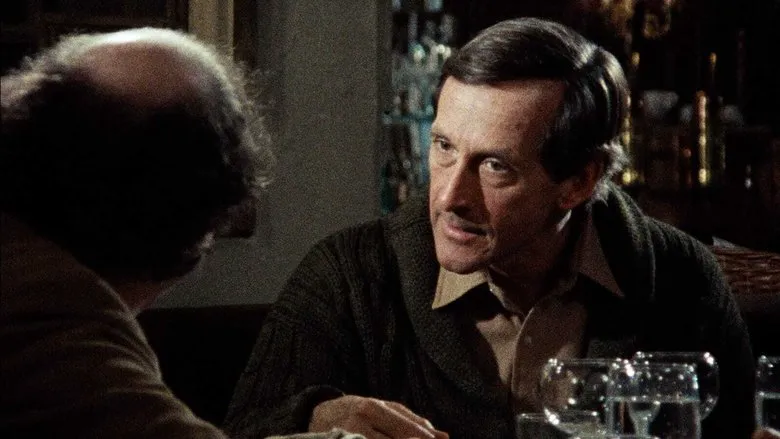Here are 17 cinematic masterpieces designed to prod your intellect and reshape your understanding of the world. Each film on this curated list offers a unique journey into complex themes, challenging conventional wisdom and inviting deep introspection. Prepare to expand your horizons – how many of these thought-provoking gems have already impacted your perspective?
Must-See Movies That Make You Think Deeply
1. Rope (1948)

The entire film daringly unfolds in a minimal setting, creating an intense, claustrophobic atmosphere. It centers on two young, intellectually arrogant men in New York who execute a twisted murder: strangling their friend David purely to assert their perceived superiority. In a chilling display of audacity, they conceal his body in a chest within their living room and immediately host a dinner party, inviting David’s unsuspecting friends, family, and even their highly perceptive former professor, Rupert Cadell. As the evening progresses, they gleefully drop subversive clues, daring Rupert to unravel their dark secret, transforming the seemingly convivial gathering into a nerve-wracking intellectual game of cat and mouse.
2. The Fountainhead (1949)
This immediately draws you into the unconventional world of the film, setting the stage for a story that is as direct and uncompromising as the architecture it portrays. The film explores themes of individualism, integrity, and the struggle against conformity through its protagonist, the fiercely independent architect Howard Roark, whose uncompromising artistic vision often clashes with societal expectations and commercial pressures.
3. The Seventh Seal (1957)
The central premise uses a game of chess between a knight, Antonius Block, and Death itself as a springboard for poignant discussions about religion, God, and the search for meaning, reflecting the diverse social and philosophical environments of the time. Some critics suggest that if a person could watch only one film before passing away, “The Seventh Seal” would be an ideal choice, as it offers profound insights into the ultimate philosophical questions of life and how one can potentially achieve a form of immortality or leave a lasting legacy through their actions and beliefs.
4. La Dolce Vita (1960)
Federico Fellini’s iconic “La Dolce Vita” follows Marcello Rubini, a disillusioned journalist in Rome who yearns to be a serious novelist but instead finds himself perpetually immersed in the superficial and decadent world of celebrity journalism. As he chases scandalous gossip and fleeting pleasures, he becomes deeply entangled in a life of endless indulgence and moral decay. Marcello’s strained relationship with his possessive mistress, Emma, unravels as he seeks genuine connection amidst the emptiness, finding temporary solace and intellectual sparring in his friendship with Steiner, a seemingly successful academic with an ideal family life. However, Steiner’s abrupt and unexpected suicide shatters Marcello’s last vestiges of hope, plunging him back into the overwhelming superficiality and existential void he was so desperately trying to escape.
5. My Night at Maud’s (1969)
The film, which earned the New York Film Critics Circle Award for Best Screenplay, is a quintessential example of how cinema can delve into nuanced human interactions and ideas without overt dramatic action. It meticulously follows a devout Catholic man who finds himself in conversation with a free-spirited woman named Maud, leading to profound discussions on morality, faith, chance, and the nature of love, revealing the intricate internal lives of its characters.
6. Love and Death (1975)
Set in Russia during the turbulent Napoleonic Wars, “Love and Death” is a brilliant satirical comedy starring Woody Allen as Boris Grushenko, a timid and neurotic Jewish man incessantly preoccupied with pervasive philosophical questions about the meaning of life, love, and the certainty of death. When Napoleon’s grand army invades Russia, Boris is conscripted into military service, where through a series of absurd coincidences, he unexpectedly becomes an accidental war hero. Upon returning home, he marries his dream woman, Sonja, who eventually convinces him to join her in a preposterous and ill-conceived plot to assassinate Napoleon, leading to a hilarious yet poignant exploration of human folly and the absurdity of existence.
7. Being There (1979)
Beneath its seemingly absurd and darkly comedic narrative, “Being There” delivers a profound social commentary, reminding us of the inherent superficiality of the modern world and the pervasive constraints of our own anxieties and preconceived notions. The film subtly suggests that a life of tranquility, simplicity, and genuine innocence may, ironically, be the most powerful and insightful way to navigate complex societal structures. Peter Sellers delivers a truly masterful and unforgettable performance in one of his final roles, perfectly embodying the enigmatic character of Chance, whose simple-minded observations are consistently misinterpreted as profound wisdom.
8. My Dinner with Andre (1981)
“My Dinner with Andre” unfolds as a captivating and intimate conversation between two men, the playwright Wally Shawn (playing himself) and his friend, the experimental theater director André Gregory (also playing himself), who represent contrasting approaches to life. Wally is grounded and content with his current, seemingly ordinary metropolitan existence, while Andre is ambitious, idealistic, and recounts a series of incredible, often spiritual, adventures that have fundamentally reshaped his worldview. Over the course of a single, extended dinner, they engage in a deep and often comical discussion about their differing views on life, the state of the world, and their own profound uncertainties. Despite their apparent ordinariness or specific professional roles, their conversation is utterly captivating and universally resonant because they address fundamental themes that resonate with anyone living on this planet – the everyday struggles, doubts, and quest for meaning that can sometimes make life feel challenging, unfulfilling, or overwhelmingly complex.
9. Blade Runner (1982)

Set in a hauntingly atmospheric and dystopian Los Angeles of 2019, Ridley Scott’s neo-noir science fiction masterpiece “Blade Runner” follows Rick Deckard, an elite “blade runner” – a specialized police operative tasked with hunting down and “retiring” (eliminating) rogue replicants. These replicants, advanced artificial humans possessing intelligence and emotions virtually identical to those of humans, have returned to Earth, desperately seeking a way to extend their inherently limited lifespans. Deckard’s morally ambiguous mission becomes profoundly complicated and existentially fraught when he finds himself falling deeply in love with a beautiful and mysterious replicant named Rachael, forcing him to confront pressing questions about humanity, memory, and sentience.
10. Barton Fink (1991)
Directed by the inimitable Coen brothers, “Barton Fink” is a darkly comedic and surreal psychological thriller starring John Turturro as the titular character and a memorable supporting performance by John Goodman. The film, released in 1991, is a dreamlike and rich metaphorical exploration of writer’s block, artistic integrity, and the insidious nature of the Hollywood studio system. It brilliantly combines elements of grotesque humor, existential dread, and horror, earning it major critical acclaim at the 1991 Cannes Film Festival, where it achieved the rare feat of winning not only the prestigious Palme d’Or but also the awards for Best Director (for Joel Coen) and Best Actor (for John Turturro).
11. The Addiction (1995)
Abel Ferrara’s “The Addiction” plunges viewers into the intellectual and horrifying world of Kathleen, a meticulous philosophy student deeply immersed in the challenging existentialist texts of Nietzsche and Heidegger, searching for moral grounding and meaning within academia. One fateful and terrifying night, a mysterious woman corners and kisses her in a dark New York alley, triggering a terrifying transformation that makes her abstract philosophical musings brutally, viscerally real. Her sudden vampiric state transforms her intellectual and moral dilemmas into a desperate and horrifying physical need for blood, forcing a spiritual redemption narrative through the lens of profound addiction. Christopher Walken delivers an enigmatic performance as Peina, a seemingly wise and experienced figure who guides her through her transformation, intensifying her “night addiction” and spiritual crisis.
12. The Truman Show (1998)

“The Truman Show” is a profound and poignant dramedy that tells the extraordinary story of Truman Burbank, an unsuspecting man who has unknowingly lived his entire life as the central character of a globally broadcast, uninterrupted reality television show since birth. Everyone around him, including his “family” and “friends,” are meticulously cast actors obeying a detailed script. Eventually, subtle bizarre occurrences and burgeoning suspicions lead Truman to uncover the shocking truth of his fabricated existence. Driven by an innate human desire for authenticity and freedom, he bravely decides to embark on a perilous journey to escape his carefully constructed, artificial world and discover true reality.
13. The Matrix (1999)
In the dimly lit, cyber-connected near future, a disillusioned computer programmer and hacker named Neo begins to intensely question the very fabric of the world around him, plagued by recurring strange anomalies. His quest for truth leads him to the enigmatic Trinity and the charismatic Morpheus, who unveil an astonishing and terrifying reality: the world perceived by humanity is an elaborate, simulated reality called the Matrix, a sophisticated neural interactive simulation. It is a prison for the human mind, controlled by sentient machines who have enslaved humanity, harvesting their bio-electrical energy while keeping them unaware of their true, bleak existence. Morpheus, a defiant rebel leader, fervently believes that Neo is “the One,” a prophecy-fulfilling individual destined to wield unprecedented power within the Matrix and ultimately save humanity from its digital enslavement.
14. Memento (2000)
Christopher Nolan’s “Memento” is an intricately structured psychological thriller that forces viewers to experience the world through the fractured mind of Leonard Shelby. Leonard suffers from rare, irreversible anterograde amnesia, rendering him incapable of forming new memories (short-term memory loss). To combat this debilitating condition and to pursue his sole motivation – finding the man he believes murdered his wife – he devises an elaborate system of self-tattooed notes, Polaroid photos, and handwritten clues. The film masterfully unfolds in reverse chronological order, mirroring the protagonist’s disorienting perception of reality and challenging the audience to piece together the truth alongside him, raising profound questions about memory, identity, and the subjective nature of truth.
15. Waking Life (2001)
Richard Linklater’s visually distinctive animated film “Waking Life” follows a young man as he dreamily drifts through a series of increasingly surreal and lucid dream states. Within this fluid, dreamlike reality, he encounters a diverse array of eccentric individuals, philosophers, artists, and academics who engage him – and the audience – in sprawling, thought-provoking conversations about nearly every profound topic imaginable. From intricate theories of quantum physics and the elusive origins of language to the complexities of existentialism, free will, human connection, and the spiritual concept of reincarnation, he finds himself immersed in a seemingly endless and deeply engaging series of dialogues that blur the lines between wakefulness and dream, reality and perception.
16. I Heart Huckabees (2004)
In the deliciously quirky and philosophical comedy “I Heart Huckabees,” Bernard and Vivian Jaffe, an unconventional husband-and-wife detective team, eschew typical crime-solving for a niche specialization: existential investigations. Their latest client, Albert Markovski, an environmental activist, is grappling with a profound and baffling existential crisis, convinced he’s encountering a mysterious “other”-something. Simultaneously, Brad Stand, Albert’s smug corporate rival, inexplicably hires the Jaffes to investigate his own burgeoning anxieties and an overwhelming sense of dissatisfaction, particularly concerning his relationship with his superficial yet highly popular girlfriend, Dawn Campbell. The film delves into various philosophical approaches to meaning, happiness, and interconnectedness through its bizarre and insightful narrative.
17. Eternal Sunshine of the Spotless Mind (2004)
“Eternal Sunshine of the Spotless Mind” is a visually inventive and emotionally resonant sci-fi romance that explores the intricate landscapes of memory, love, and heartbreak. Joel Barish is heartbroken to discover that his eccentric ex-girlfriend, Clementine Kruczynski, has undergone a revolutionary procedure performed by Lacuna, Inc., to erase all memories of him from her mind. In a desperate attempt to alleviate his profound pain, Joel impulsively decides to undergo the same procedure himself. However, as the memories of Clementine begin to systematically fade and unravel during the process, he rediscovers the profound beauty, joy, laughter, and even the necessary pain of their relationship. Caught within his own subconscious mind, Joel desperately tries to preserve the remaining fragments of these cherished memories, realizing that erasing the past might mean erasing a crucial part of himself.